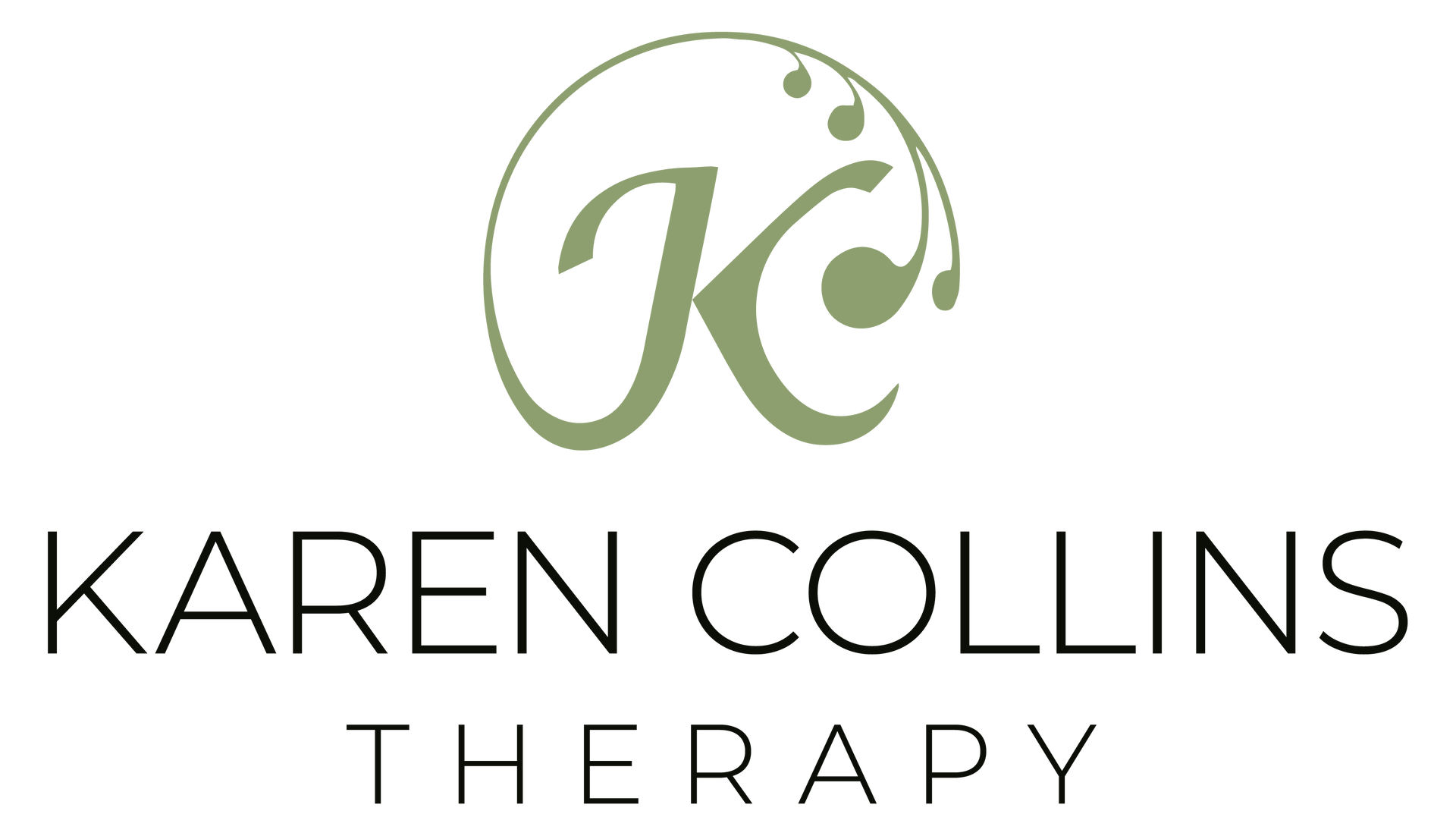Can Your Relationship Survive Infidelity? Couples Therapy in Petaluma
Discovering that your partner has been unfaithful is one of the most devastating experiences a relationship can face. If you're reading this, you're likely dealing with the aftermath of infidelity and wondering if your relationship can survive. The pain, anger, confusion, and loss of trust can feel overwhelming. You might be questioning everything about your relationship and your future together.
I'm Karen Collins, a licensed marriage and family therapist in Petaluma, and I want you to know that healing is possible. Many couples in Petaluma and throughout Sonoma County come to me after discovering an affair, and I've seen firsthand that relationships can not only survive infidelity, they can sometimes emerge stronger when both partners are willing to do the work.
As a couples therapist with over 20 years of experience, I specialize in helping couples navigate the complex emotions and challenges that follow infidelity. I use emotionally focused therapy and attachment-based approaches to help couples rebuild trust, repair their connection, and create a new foundation for their relationship. One of the most important things I bring to this work is absolute neutrality, I don't take sides. My role is to create a safe space where both partners can be heard, where pain can be processed, and where healing can begin.
Whether your relationship involved a one-time mistake or an ongoing affair, whether it was physical infidelity or an emotional affair, couples therapy can help you work through the trauma and decide what's best for your future, whether that means rebuilding together or finding closure to move forward separately.
ARTICLE OUTLINE
In this guide, I'll walk you through what happens in couples therapy after infidelity, how to rebuild trust after an affair, and the realistic timeline for healing. We'll explore what both partners need from the recovery process, common challenges that arise, and how emotionally focused therapy helps couples reconnect. You'll also learn practical steps for moving forward and find answers to the questions many couples ask when they're wondering if their relationship can survive this crisis.
Can a Relationship Really Survive Infidelity?
This is the first question most couples ask when they walk into my office in downtown Petaluma. The short answer is yes, many relationships do survive infidelity. Research shows that when both partners are committed to healing and willing to engage in couples therapy, relationships can recover and sometimes become even more connected than before.
But I'm not going to sugarcoat it: surviving infidelity is hard work. It requires transparency, patience, accountability, and a willingness to face difficult emotions. The relationship you had before is over, that's the painful truth. What you're working toward in couples counseling is creating a new relationship, one that's built on honesty, deeper understanding, and renewed commitment.
Not every relationship should survive infidelity. Sometimes the affair reveals fundamental incompatibilities or patterns that can't be changed. Sometimes one partner isn't willing to do the necessary work. As a therapist in Petaluma who works extensively with couples facing this crisis, I help partners honestly assess whether staying together serves both of your needs. There's no shame in deciding that the healthiest path forward is apart.
But for many couples who seek therapy, the crisis of infidelity becomes a catalyst for addressing issues that were quietly damaging the relationship long before the affair happened. This doesn't excuse the betrayal, but it does provide context that can help both partners understand what happened and how to prevent it from happening again.
What Happens in Couples Therapy After
Infidelity
When couples come to me for therapy after infidelity, the first sessions focus on stabilizing the crisis. Emotions are running high, there's often rage, devastation, shock, and overwhelming pain. My initial goal is to help both partners feel heard and to create some structure around how you'll navigate this difficult time.
In those early sessions, we work on establishing immediate guidelines. This might include the partner who had the affair cutting all contact with the other person, agreeing to transparency about whereabouts and communication, and committing to the therapy process. For the betrayed partner, it involves creating boundaries around how much detail feels helpful versus retraumatizing.
One of the most important things I do as a couples therapist is maintain complete neutrality. I absolutely do not take sides. The partner who was betrayed is experiencing real trauma and needs validation and support. The partner who had the affair is often dealing with guilt, shame, and sometimes their own unmet needs that contributed to their choices. Both of you need to feel that therapy is a safe space where you can be honest.
As a licensed therapist using emotionally focused therapy approaches, I help couples understand the attachment wounds underneath the infidelity. Often, affairs happen when one partner feels disconnected, invisible, or chronically rejected in the relationship. Again, this doesn't excuse the affair, there were other choices that could have been made, but understanding the emotional context helps both partners make sense of what happened.
The Partner Who Had the Affair: What You Need to Do
If you're the partner who had the affair, rebuilding trust starts with you. Your actions from this point forward will either support healing or make it impossible. Here's what therapy helps you understand about your role in recovery.
First, take full responsibility. This means no minimizing, no blaming your partner for "driving you" to the affair, and no defensive justifications. Yes, there may have been problems in the relationship, we'll address those, but you made a choice that caused harm. Owning that completely is essential.
Second, practice radical transparency. This is often uncomfortable, but it's necessary. Your partner needs to know where you are, who you're with, and what you're doing. This isn't about control, it's about rebuilding the trust you broke. Be forthcoming with information rather than waiting to be asked. "Trickle truth," where information comes out slowly over time, does more damage than full disclosure early on.
Third, be patient with your partner's pain. They may ask the same questions repeatedly. They may have intense emotional reactions. They may need reassurance dozens of times. This is normal after betrayal trauma. Therapy can help you understand that these reactions aren't about punishing you, they're about your partner trying to make sense of something that shattered their sense of safety.
Finally, cut all contact with the person you had the affair with. No "closure" conversations, no checking in to see how they are, no maintaining a friendship "for work purposes." Many couples cannot heal while any connection remains.
The Betrayed Partner: What You Need From Recovery
If you're the partner who was betrayed, you're likely experiencing a form of trauma. The discovery of infidelity can trigger symptoms similar to PTSD, intrusive thoughts, hypervigilance, difficulty sleeping, and intense emotional reactions. Couples therapy provides space to process this trauma while working on the relationship.
You need to feel heard. Your pain, your anger, your devastation, all of it is valid. A good couples therapist in Petaluma will ensure that your experience is acknowledged and that you're not rushed through your feelings. Healing can't happen if you're expected to "just get over it."
You also need information. Many betrayed partners struggle with how much detail to ask for about the affair. Some people need to know everything; others find that too much detail is retraumatizing. In therapy, we work together to figure out what serves your healing. Generally, knowing the basic facts (who, when, how long) is important, but graphic sexual details often don't help.
You need to see consistent change. Words are important, but actions matter more. You're watching to see if your partner follows through, shows up for therapy, respects boundaries, and demonstrates genuine remorse. This consistency is what slowly begins to rebuild trust.
And you need permission to take your time. There's no timeline for healing from infidelity. Some couples start feeling more stable after several months; for others, it takes a year or two. Professional help through couples counseling provides guidance on what's normal and what might indicate you're stuck.
Rebuilding Trust: Small Steps, Daily Actions
Trust isn't rebuilt through grand gestures or expensive gifts. It's rebuilt through small, consistent actions over time. In couples therapy, we work on identifying what these actions look like for your specific relationship.
For the partner who had the affair, rebuilding trust means following through on every commitment, no matter how small. If you say you'll be home at 6pm, be home at 6pm. If you promise to text when you get to work, text when you get to work. These tiny acts of reliability slowly demonstrate that you're trustworthy again.
It also means proactive communication. Don't wait for your partner to ask where you are or who you're talking to, volunteer that information. Check in throughout the day. Be open about your phone, your email, your schedule. This level of transparency might feel like a loss of privacy, but it's temporary and necessary.
For the betrayed partner, rebuilding trust means being willing to notice when your partner is being trustworthy. This is incredibly hard when you're hypervigilant for signs of more betrayal, but healing requires acknowledging the positive changes you see. It doesn't mean you have to trust completely, just that you're willing to observe the evidence that they're working to be trustworthy.
Couples therapy in Petaluma provides a structured way to practice these new patterns. We work on communication skills that help you talk about difficult topics without spiraling into fight-or-flight reactions. We address the underlying relationship issues that existed before the affair. And we help both partners understand what needs weren't being met and how to meet them within the relationship moving forward.
The Role of Emotionally Focused Therapy in Affair Recovery
As a therapist who uses emotionally focused therapy approaches, I help couples understand the attachment needs underneath the crisis of infidelity. EFT recognizes that we're wired for connection and that relationship distress often comes from feeling emotionally disconnected from our partner.
When one partner has an affair, it's often a (deeply flawed) attempt to meet attachment needs that weren't being met in the primary relationship. Maybe they felt chronically criticized and found someone who made them feel valued. Maybe they felt their partner was always too busy and found someone who prioritized them. Maybe they felt invisible and wanted to feel desired again.
Understanding these dynamics doesn't excuse the affair, but it helps both partners make sense of what happened beyond just "they're a bad person who did a bad thing." Emotionally focused therapy helps you identify these patterns, express the vulnerable emotions underneath the conflict, and learn new ways to reach for each other when you're feeling disconnected.
For many couples in Petaluma who work with me, this deeper emotional work is what transforms their relationship. They learn to recognize when they're sliding into old patterns of disconnection. They practice asking for what they need directly rather than letting resentment build. They develop the skills to repair ruptures before they become relationship-threatening.
Common Challenges in Recovering From Infidelity
Even with professional help, couples face predictable challenges in affair recovery. Knowing what to expect can help you navigate these difficult moments.
Triggers are common and can last for months or years. A song, a location, a time of year, a phrase, anything associated with the discovery of the affair or the affair itself can trigger intense emotional reactions. These aren't signs that you're not healing; they're a normal part of processing betrayal trauma. Couples therapy helps you develop strategies for managing triggers together.
The betrayed partner often experiences waves of anger and grief long after the crisis phase has passed. You might think you've moved through the anger, and then something brings it all back. This is normal. Healing isn't linear. A good therapist in Petaluma will help you understand these waves and work through them rather than getting stuck in them.
Intimacy, both emotional and physical, often becomes complicated after infidelity. Some couples struggle with the betrayed partner not wanting to be physically close. Others experience the opposite, a desperate attempt to reconnect physically before emotional safety has been reestablished. In therapy, we work at your pace to help you rediscover intimacy in ways that feel safe for both of you.
The "comparison" problem is real. The betrayed partner may obsess about the other person—what they looked like, what they offered that was different, whether they were "better" in some way. This is painful for both partners. Therapy helps you work through these intrusive thoughts and refocus on your own relationship.
How Long Does Recovery Take?
This is one of the most common questions couples ask. The honest answer is that it varies, but research and my experience as a licensed marriage and family therapist suggest that meaningful healing typically takes 18-24 months of consistent work.
In the first 3-6 months, we're focusing on crisis stabilization, understanding what happened, and establishing new patterns of transparency and communication. This phase is exhausting for both partners.
In months 6-12, many couples start seeing real progress. The acute crisis has passed, trust is slowly rebuilding, and you're working on the deeper relationship patterns that need to change. There are still difficult moments, but they're not as constant.
By 12-18 months, many couples report feeling more stable. They've weathered some triggers and managed them successfully. They've had conversations about the affair without it completely derailing their week. They're reconnecting emotionally and physically in ways that feel genuine.
Beyond 18 months, couples are typically working on solidifying their "new" relationship and addressing any remaining lingering issues. Some couples continue therapy periodically for "tune-ups" as they encounter new challenges.
It's important to note that this timeline assumes both partners are actively engaged in the therapy process. If one partner is resistant, defensive, or not fully committed to change, recovery takes longer or may not be possible.
When Couples Therapy Reveals Deeper Issues
Sometimes, the work we do in couples counseling after infidelity uncovers patterns and problems that existed long before the affair. This isn't about blame, it's about understanding. Many couples discover that they've been disconnected for years, that communication broke down gradually, that intimacy had been declining, or that one or both partners felt chronically misunderstood.
These revelations can be painful, but they're actually opportunities. When both partners can honestly look at what wasn't working in the relationship, you can make meaningful changes rather than just "getting past" the affair without addressing its roots.
I work with couples in Petaluma to identify these patterns and develop new ways of relating. Maybe one partner has always shut down during conflict, leaving the other feeling abandoned. Maybe criticism has been the primary form of communication for years. Maybe both partners stopped making bids for connection and drifted into parallel lives.
Addressing these deeper issues is what creates a genuinely new relationship rather than just returning to the one you had, which likely wasn't fully meeting both partners' needs. This deeper work is where emotionally focused therapy truly shines, helping you understand not just what you do, but why you do it and how to change it.
Is Couples Therapy Right for Your Situation?
Not every situation is appropriate for couples counseling. If there's ongoing abuse, if one partner is actively addicted and refusing treatment, or if one partner is still involved with the affair partner, individual therapy is likely more appropriate than couples work.
But if both of you are willing to show up, be honest, and do the hard work of healing, couples therapy can help. Even if you're not sure whether you want to stay together, therapy provides a structured space to explore that question and, if you do decide to separate, to do so in a way that provides closure and clarity.
Many couples in Petaluma who come to me aren't sure they can make it. They're coming because they want to try, but they're realistic about the challenges. That's exactly the right mindset. Therapy helps you figure out if your relationship can survive this and what that survival requires from both of you.
Why Choose a Local Therapist in Petaluma
Working with a therapist in downtown Petaluma offers practical advantages for couples dealing with the crisis of infidelity. In-person therapy provides a level of connection and safety that many couples find essential when processing such vulnerable emotions.
My office is conveniently located in Petaluma, making it accessible for couples throughout Sonoma County and Marin County. The consistency of meeting in the same safe space each week helps establish the routine and structure that's so important during this unstable time.
As a therapist who has been part of this community for years, I understand the local context and values that shape relationships here. I also offer the kind of down-to-earth, practical approach that many people in this area appreciate, therapy that's grounded, direct, and focused on creating real change.
FAQ: Common Questions About Couples Therapy for Infidelity
Should we start couples therapy immediately after discovering the affair?
It depends. If emotions are extremely high, if there's a risk of violence or if one partner is in acute crisis, individual therapy might be the first step. But for many couples, starting within the first few weeks provides structure during chaos. I typically recommend scheduling an initial consultation quickly so we can assess what's most appropriate for your situation.
What if my partner won't admit the affair was wrong or won't take responsibility?
This is a significant obstacle. Couples therapy requires both partners to be honest and willing to take responsibility for their actions. If your partner is defensive, minimizing, or blame-shifting, I'll address this directly in therapy. Sometimes people are more able to hear feedback from a neutral third party than from their hurt partner. If defensiveness continues despite therapeutic intervention, we'll need to honestly discuss whether couples work can be effective.
I'm the one who had the affair, and my partner won't let it go. They bring it up constantly. Will therapy help?
Yes, but understand that "letting it go" doesn't mean forgetting or never mentioning it again. It means processing the betrayal to the point where it doesn't dominate every interaction. This takes time, typically many months. Therapy can help your partner work through their trauma while also helping you understand why their reactions aren't about punishing you. We'll also work on healthier communication patterns for both of you.
Do we need to tell our kids/family/friends about the affair?
This is a personal decision we can explore in therapy. Generally, I recommend limiting who knows during the early crisis phase. Telling everyone can create additional pressure and complicate healing because family and friends often take sides. Your children don't need to know details about adult relationship issues unless they've already discovered information. We can talk through the pros and cons for your specific situation.
Can a relationship survive multiple affairs?
This is more complicated. One affair is a crisis that can be worked through if both partners are committed. Multiple affairs often indicate deeper issues, perhaps with the relationship structure itself, with one partner's ability to maintain commitment, or with patterns that keep repeating. It's not impossible to heal from multiple betrayals, but it requires extremely deep work and absolute commitment to change. We'd need to assess your specific situation.
How do I know if I'm ready to forgive?
Forgiveness isn't a light switch, it's a process. Early on, you might have moments where you feel softer toward your partner, followed by waves of anger again. That's normal. You're ready to work on forgiveness when you can see your partner's genuine efforts, when you're able to imagine a future together, and when staying in the relationship feels like a choice you're making rather than something you're trapped in. Therapy helps you
navigate this process without rushing it.
Will our relationship ever feel normal again?
It will feel different. The relationship you had before the affair is over, that's part of the grief. What many couples find is that the "new" relationship, the one built through the hard work of recovery, is actually more honest and connected than what you had before. You develop communication skills you didn't have. You learn to be more vulnerable. You understand each other more deeply. So no, it won't be the same, but it can be good, sometimes better.
SUMMARY & NEXT STEPS
Discovering infidelity is devastating, but it doesn't have to be the end of your relationship. Many couples who come to my office in downtown Petaluma feeling hopeless and broken eventually rebuild trust, reconnect emotionally, and create a stronger relationship than they had before. But this only happens when both partners are willing to do the work, and professional help makes that work more effective and more likely to succeed.
Couples therapy provides the structure, guidance, and safe space you need to navigate this crisis. As a licensed marriage and family therapist who specializes in helping couples through infidelity, I bring both professional expertise and genuine compassion to this work. I understand that both partners are hurting, and I maintain absolute neutrality to ensure both of you feel heard and supported.
If you're in Petaluma, Marin County, or Sonoma County and your relationship is struggling after infidelity, I encourage you to reach out. You don't have to have everything figured out before starting therapy. You don't even have to be certain you want to stay together. You just need to be willing to honestly explore what's possible.
Ready to begin healing?
Contact Karen Collins Therapy in Petaluma to schedule your first appointment. Call or text (415) 368-3478, or email contact@karencollinstherapy.com.
Your relationship deserves the chance to heal, and I'm here to help you through this difficult journey.












